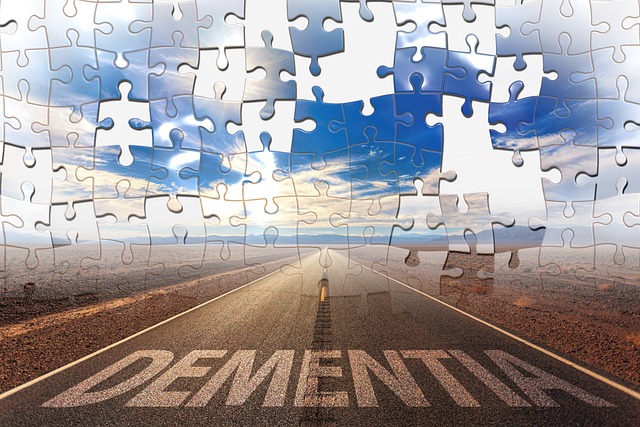
Trazodone (podcast) is part of a class of antidepressants known as triazolopyridines. I am seeing trazodone for dementia related agitation in my practice and wanted to get a quick review of how solid the evidence is.
Let’s start with the basics. Trazodone is FDA-approved for use in managing and treating major depressive disorder either as monotherapy or as an adjunct agent to other antidepressants or psychotherapies. Off-label, trazodone is commonly used to treat insomnia. Less common off-label uses include agitation and insomnia in Alzheimer’s Disease, anxiety, schizophrenia, bulimia, substance abuse, fibromyalgia, and post-traumatic stress disorder (PTSD). It may also reduce behavioral and psychological symptoms in Alzheimer’s Disease and frontotemporal dementia; however, the evidence for trazodone use in these patient populations is limited.
In my patient population, I do see a fair amount of trazodone for dementia related agitation and sleep disturbances so I wanted to give a rundown of the evidence that supports this. The evidence is weak and limited in my opinion but without many solid options after non-pharmacological interventions, it is often considered.
Sleep Disturbances in Dementia
(McCleery, et al., 2020) This 2020 systematic review of placebo-controlled trials of medications to treat insomnia in dementia patients found low-certainty evidence that trazodone 50 mg, taken nightly for two weeks, led to improved total sleep time in patients with moderate to severe Alzheimer’s Disease (one trial, n = 30). Additionally, the number of awakenings and time awake during the night were similar between the treatment and placebo groups.
Trazodone For Dementia Related Agitation – Alzheimer’s Disease
(Teri, et al., 2000) In this randomized, placebo-controlled clinical trial (n = 149), haloperidol, trazodone, or behavior management techniques with placebo were compared in the treatment of agitation in Alzheimer’s Disease patients. The Alzheimer’s Disease Cooperative Study Clinical Global Impression of Change was the primary outcome measure. Secondary outcomes included patient agitation, cognition, function, and caregiver burden. 34% of patients improved relative to baseline. There were modest reductions in agitation in all three groups; however, there were no significant differences in the primary outcome and symptoms did not respond differentially to the different treatments.
In another trial by Sultzer, et al. (1997), the efficacy of trazodone and haloperidol were compared in the treatment of agitation in patients with dementia (n = 28). Patients with dementia and agitated behaviors were randomly assigned to double-blind treatment with either trazodone (50-250 mg/day) or haloperidol (1-5 mg/day) for nine weeks. There were no significant differences in improvement between groups; however, adverse effects were higher in the haloperidol group. The authors concluded that patients with repetitive, verbally aggressive, and oppositional behaviors responded preferentially to trazodone, and appeared to be better tolerated in this patient population.
Frontotemporal Dementia
(Lebert, et al., 2004) In this randomized, double-blind, placebo-controlled cross-over study, participants (n = 26) were randomly assigned to either the placebo-trazodone group or the trazodone-placebo group, and followed for two 6-week treatment periods. Trazodone dosing was titrated up to 300 mg over the course of 12 weeks. The primary outcome was the severity of the behavioral disturbances assessed by the total Neuropsychiatric Inventory (NPI) score. The study found a significant decrease in the NPI total after trazodone treatment when compared to placebo. This overall improvement was mainly associated with irritability, agitation, depressive symptoms, and eating disorders on the NPI scale.
The authors attributed treatment efficacy in this patient population to the mechanism of action of trazodone. The degeneration of the serotonergic system associated with the frontal lobes of the brain are thought to contribute to frontotemporal dementia. Trazodone increases extracellular serotonin levels in the frontal cortex.
Conclusion
Overall, studies assessing trazodone for dementia related agitation in Alzheimer’s Disease and frontotemporal dementia are quite limited. There are very few randomized control trials comparing its efficacy against placebo or another agent, and those that do exist have small sample sizes. Other available studies are primarily case studies and/or observational studies, which also have their limitations.
This article was written by Sarah Zahirudin, PharmD Candidate in collaboration with Eric Christianson, PharmD, BCPS, BCGP
Over 6,000 healthcare professionals have subscribed for our FREE Giveaways. Why haven’t you?!
Popular Amazon Books – Study Materials
Popular Amazon Books For All Healthcare Professionals
References:
- Shin J and Saadabadi A. Trazodone. StatPearls [Internet]. Last updated 10 July 2022. Available at https://www.ncbi.nlm.nih.gov/books/NBK470560/.
- McCleery J and Sharpley A. Pharmacotherapies for sleep disturbances in dementia. Cochrane Database Syst Rev. 2020(11). PMID: 33189083.
- Lebert F, Stekke W, Hasenbroekx C, and Pasquier F. Frontotemporal Dementia: A Randomized, Controlled Trial with Trazodone. Dement Geriatr Cogn Disord. 2004;17:355-359. PMID: 15178953.
- Teri L, Logsdon RG, Peskind E, Raskind M, Weiner MF, Tractenberg RE, Foster NL, Schneider LS, Sano M, Whitehouse P, Tariot P, Mellow AM, Auchus AP, Grundman M, Thomas RG, Schafer K, Thal LJ. Treatment of agitation in AD: a randomized, placebo-controlled clinical trial. Neurology. 2000;55(9):1271–1278.
- Sultzer D, Gray K, Gunay I, Berisfor MA, and Mahler M. A double-Blind Comparison of Trazodone and Haloperidol for Treatment of Agitation in Patients with Dementia. Am J Geriatr Psychiatry. 1997;5(1):60-69. PMID: 9169246.
- Mafalda Gonçalves Gonçalo A and Augusta Vieira-Coelho M. The effects of trazodone on human cognition: a systematic review. Eur J Clin Pharmacol. 2021;77(11):1623-1637. PMID: 34097124.
- Press D. Management of neuropsychiatric symptoms of dementia. UpToDate. Last updated 7 Apr 2022.


